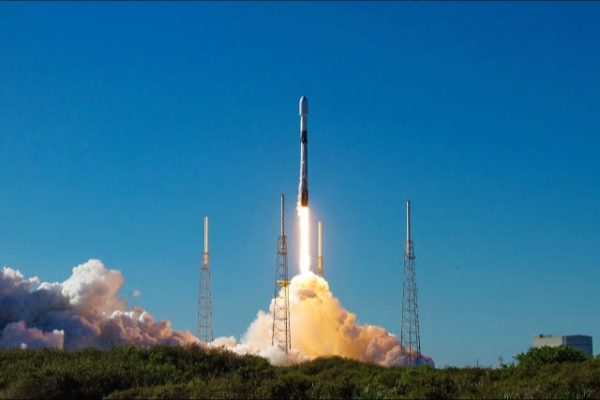Satellite technology has seen significant growth in Africa over the past ten years. While the telecommunications sector has traditionally been the primary beneficiary, Earth observation is increasingly gaining value with a growing number of African states now eager to enhance their territorial monitoring capabilities through satellite technology.
Senegal successfully launched its first satellite, GAINDESAT-1A, into space on Friday, August 16, 2024, after a three-month delay. The nanosatellite lifted off at 6:56 p.m. local time from Vandenberg Space Force Base in California aboard SpaceX's Falcon 9 rocket as part of the Transporter-11 mission.
Developed by Senegalese engineers and technicians trained at the University Space Center of Montpellier (CSUM) under a partnership with the Senegalese government, GAINDESAT-1A represents the culmination of a five-year project.
President Bassirou Diomaye Faye hailed the achievement, saying, "Senegal enters a new era today with the successful launch of our first satellite ... this achievement marks a major step towards our technological sovereignty."
The launch is the first phase of Senegal's national space program, "SenSAT," which aims to leverage the space sector as a driver of socio-economic development. The program focuses on designing and utilizing space-based tools to meet national needs for space products and services.
Moussa Baldé, former Minister of Higher Education, Research, and Innovation, stated last October that the program aims to establish Senegal as "a space hub for the sub-region."
GAINDESAT-1A, an Earth observation satellite, will contribute to data collection and analysis for various applications, including natural resource and land management, disaster prevention, agriculture and more.
The satellite's control and data reception center, inaugurated in October 2023, is located in Diamniadio.



















